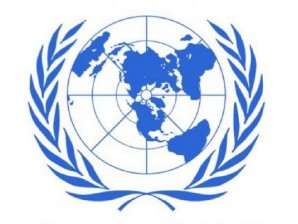UN: Crises outstrip donor funding

The result is more suffering and deaths for thousands of needy people, John Ging said.
“The needs are outstripping the means,” Ging, operations director for the UN Office for the Coordination of Humanitarian Affairs, said in a year-end interview. “There’s a global financial crisis and this is just an equation that doesn’t work. We have to find solutions.”
Ging said donors are constrained by economic hardship as a result of the recent financial meltdown, while the demand for humanitarian help keeps growing.
The UN has launched its biggest-ever humanitarian appeal — for $8.5 billion to help 51 million people in 16 countries in 2013. This year’s appeal, for $7.7 billion, was only 60 percent funded.
In addition, the United Nations launched a separate appeal this month for $1.5 billion to help 4 million Syrians inside the country who require urgent assistance, and more than 500,000 Syrian refugees who have fled to neighboring countries.
Article continues after this advertisementThe United Nations announced Friday that Secretary-General Ban Ki-moon will chair a pledging conference in Kuwait City on Jan. 30 to fund the Syrian appeal. The UN chief urged donor countries to do more to alleviate the suffering of the Syrian people and “address the funding gap,” UN spokesman Martin Nesirky said.
Article continues after this advertisementGing singled out the “increasingly catastrophic” situation in Syria, where the estimate of those needing humanitarian assistance has jumped dramatically from 2.5 million two months ago to over 4 million today — and will almost certainly rise as fighting intensifies.
He said local humanitarian staff are working in dangerous conditions and reaching more than 500,000 people inside Syria — but “it’s not adequate.”
“It’s not meeting the needs that have been identified, and there’s just a relentless decline in the humanitarian situation,” Ging said in an interview late last week. “And what’s most depressing is that there’s no prospect on the horizon of a solution. Everything points to the fact that it will continue to get worse … which means more killed, injured and driven into humanitarian suffering.”
Over 2 million people are displaced inside Syria but Ging said their ability to cope has “really collapsed.” And the UN refugee agency has warned that the number of Syrian refugees could double to 1.1 million by June 2013.
The humanitarian situation elsewhere in the world is also getting worse.
The $8.5 billion appeal includes what Ging calls “mega-crises” where huge resources are needed:
- $1.3 billion for 3.8 million people in Somalia including nearly 250,000 malnourished children
- $1.15 billion for South Sudan and $983 million for Sudan where hundreds of thousands of people have been displaced by fighting
- $893 million for Congo where fighting continues to wrack the east
- $477 million for those caught in the long-running war in Afghanistan
- $370 million for Mali and $180 million for Mauritania in the Sahel region of West Africa hit by drought and conflict.
Ging said the big increase this year was across the Sahel where more than 18 million people don’t have enough to eat, including 1.2 million children who are acutely or severely malnourished, and where over 500,000 under the age of five have died.
The two big “drivers” that are making the global humanitarian situation worse are climate change, which has led to drought across Africa and flooding elsewhere, most recently in the Philippines, and conflicts that go on year after year, he said.
“Humanitarian assistance is not a solution,” Ging said. “Humanitarian assistance is a contribution to help people survive as they hopefully rebuild their lives.”
Unfortunately, prolonged conflicts leave people dependent on aid for many years, and that is happening more often. He cited Congo, where in Minova in eastern Kivu he met families who had been displaced seven times in the last few years.
To try to address the growing humanitarian crises, Ging said there is a major effort to build “resilience” so communities can withstand the shocks from the effects of climate change.
One of the positive developments this year has been a coordinated effort by all donors in the Sahel to deal with constant drought and make better use of scarce resources including improvements in harvesting water, selecting seeds, animal husbandry and irrigation, he said.
Another was promoting development and preventing famine in Somalia this year, he said.